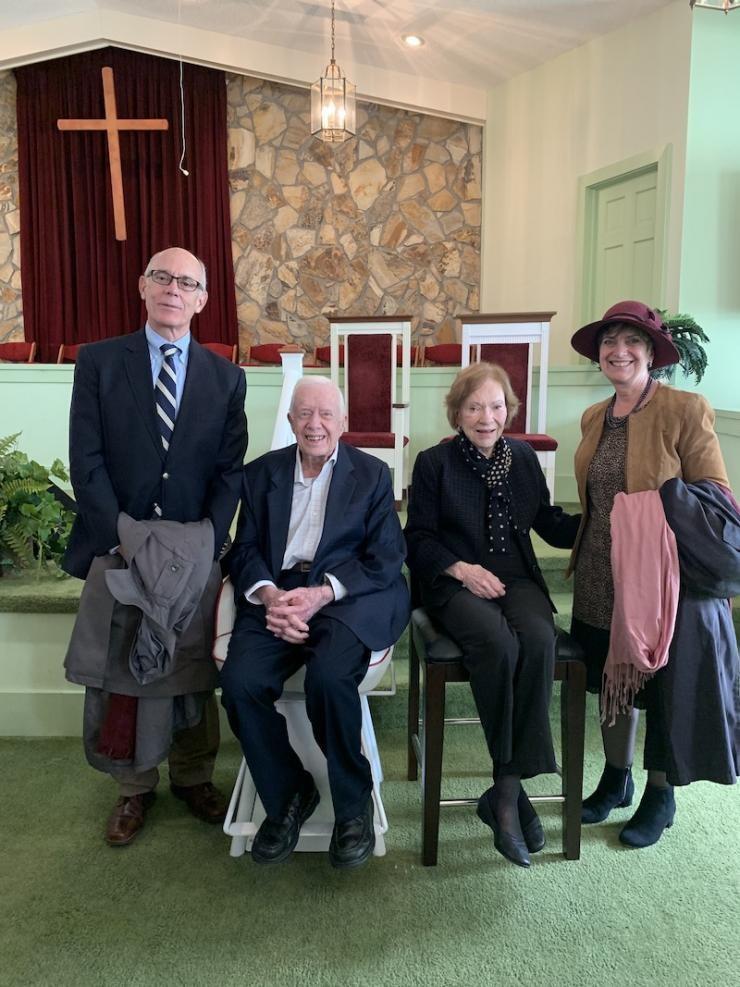
Nearly five years ago, Georgia Tech started the Serve-Learn-Sustain initiative. At its core, it intends to develop the desire of most of our students to change the world for good, to serve others, and to share their intellectual and material wealth.
Specifically, Serve-Learn-Sustain is an “Institutional effort to equip Georgia Tech students to learn and serve around the theme “creating sustainable communities” through engagement with content and context.” Ultimately, the objective is for every student to develop the desire to improve the human condition and to have the tools and experiences to indeed go out and change the world, one person and one community at a time. At Georgia Tech, we want all our students to be servant leaders.
“Servant Leadership” is a concept that most self-proclaimed gurus of personal development emphasize as an aspiration of all great leaders. Interestingly, the true model of servant leadership is not too far from Atlanta. Last Jan. 26, I had the unforgettable experience and opportunity to visit former President Jimmy Carter’s Maranatha Baptist Church in Plains, Georgia. Few people were present because their attendance was not confirmed, but he and Mrs. Carter were there. The Bible discussion was led by Mrs. Kim Fuller, the Carters' niece – the topic, around the writings of the apostle Paul, was servant leadership. Her message centered around three characteristics that of which all of us, including our leaders, should strive.
The first is harmony, the ability to coexist, to seek reconciliation rather than animosity and strive. The uncompromising dedication to seek peace and community, accepting and celebrating our differences. Second is humility, recognizing that it is not about celebrating the self but about rejoicing on the well being of others. It is about accomplishments and “doing,” and less about recognition and kudos. Finally, servant leaders are helpful. The reality is that none of us make it in life alone and without help from others. Those who believe they made it alone are just simply arrogant. Hence it is our duty, our obligation, our reward, to help others. Helping others should not be an extracurricular activity. It should be what drives our work and daily activities. A job well done is one where organizations and others gain and benefit from your efforts. Far too often, even with the best of intentions, we think “what is there for me?” rather than “what can I do for you?”.
To me, Jimmy and Rosalynn Carter are the paragons of servant leaders. I cannot begin to explain what it meant for me to visit with them at their church. I have enormous admiration for them. In their presence, I found myself speechless. When I think of what they have accomplished and done, all with such with grace and extraordinary humility, I feel completely unaccomplished and small – what a life they have had! They have done so much for so many. I regret that I probably will never have the opportunity to learn from them the mysteries of their faith and values. How they reconcile their very humble, giving, caring life with the very public, powerful existence they have experienced which, as we know, can be corrosive.
The pastor of Maranatha Baptist Church, Tony Lowden, opened the service with a statement along the lines: “You all came to meet J.C., I hope that in the process you also get to know the other J.C.” I am not a religious person, as you all know, but I can tell you that when I shook the hand and spoke to J.C. the other J.C. was reflected and lived within him.
-Rafael L. Bras
